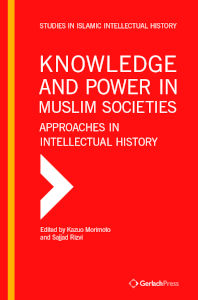Studies in Islamic Intellectual History

Knowledge and Power in Muslim Societies
Approaches in Intellectual History
Kazuo Morimoto, Sajjad Rizvi (eds.) – 2023
The study of Islam and of Islamic history is enjoying something of a revival with an emphasis on intellectual history and a greater concern with the ’subaltern’ within that. Why does religion continue to hold significance in our times? Are humans better off, adaptable, less violent, consistently unpredictable? How can we understand the course of our political history and the seeming dominance of democracy and its discontents, not least the legacies of coloniality and empire? While nationalist historiographies prevail in man...
more »



